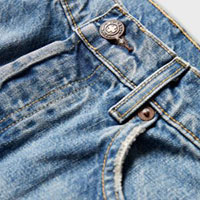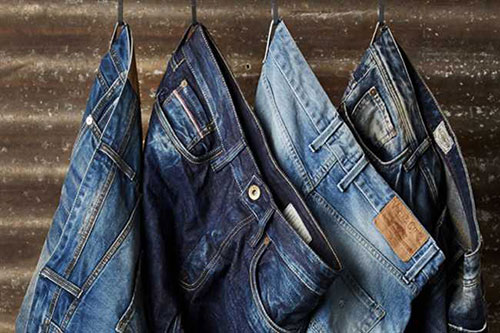"As was evident from the 2008 recession, the global denim industry is not immune to the effects of economic crisis that looms large in 2020. The 2008 recession hit the denim industry like a storm. It set new standards of the focus of many brands shifting to newer markets such as Asia. Consumers could no longer spend $300 for a pair of jeans and so they “traded down” and sought out new brands and retailers. Increasing casualisation of the workplace gave rise to the birth of new styles such as athleisure, comfort and stretch bottoms, which began to accelerate during the Great Recession."
 As was evident from the 2008 recession, the global denim industry is not immune to the effects of economic crisis that looms large in 2020. The 2008 recession hit the denim industry like a storm. It set new standards of the focus of many brands shifting to newer markets such as Asia. Consumers could no longer spend $300 for a pair of jeans and so they “traded down” and sought out new brands and retailers. Increasing casualisation of the workplace gave rise to the birth of new styles such as athleisure, comfort and stretch bottoms, which began to accelerate during the Great Recession.
As was evident from the 2008 recession, the global denim industry is not immune to the effects of economic crisis that looms large in 2020. The 2008 recession hit the denim industry like a storm. It set new standards of the focus of many brands shifting to newer markets such as Asia. Consumers could no longer spend $300 for a pair of jeans and so they “traded down” and sought out new brands and retailers. Increasing casualisation of the workplace gave rise to the birth of new styles such as athleisure, comfort and stretch bottoms, which began to accelerate during the Great Recession.
The recession also forced brands to squeeze production costs by shifting their sourcing to cheaper markets. It led many fast fashion brands replacing the premium pair of denims in the consumer’s shopping carts as disposable clothing became more acceptable.
The 2020 recession however, paints a different picture and doesn’t focus on fast fashion. The emergence of new e-commerce channels has enabled consumers to buy their desired products at affordable rates. It has also led to the evolution of value-centric retailers like Target who are advancing the quality of their products according to its customers’ needs.
e-commerce channels has enabled consumers to buy their desired products at affordable rates. It has also led to the evolution of value-centric retailers like Target who are advancing the quality of their products according to its customers’ needs.
As a result, department stores are likely to suffer the most in the 2020 recession as these are least equipped to customise their products’ quality and prices according to their customers’ needs.
Combining sustainability with practicality
Many denim brands adopted sustainable businesses after the 2008 recession. It became the ‘new premium’ for brand Candiani and also the instigator of its creativity. It also led to new innovations with brands like Re/Done, Ateliere & Repairs and Blue Of A Kind deconstructing and restoring the 5-pocket jeans into a more conic and sustainable piece of clothing.
However, the focus on sustainability is likely to diminish during the 2020 recession, unless it is inbuilt into a brand’s DNA. Companies who tap into sustainability while also keeping their profit margins in view are likely to emerge as winners.
Innovation to be the key to success
The 2008 recession also led to the popularity of new denim styles as consumers were no longer satisfied with a simple pair of jeans. Premium denim styles began paying more attention to their product and details. In 2010, denim overalls propelled Los Angeles-based Frame onto the radar of fashionistas. Today, the brand is expanding its product offerings by adding leather handbags and sneakers to its line.
Similarly, Baldwin, which rebranded itself as BLDWN earlier this year, now aims to be a premium lifestyle brand based on modern American fashion. Another emerging trend is the reduction in the demand for indigo fabrics. People are selling less amount of the indigo dye even though there’s not a major reduction in orders for indigo jeans.
However, simply rebranding itself and focusing on more non-denim items is not likely to pull the industry out of the 2020 recession. For this, the industry needs to a create products are the uniquely different from those already present in their consumers’ closets.












